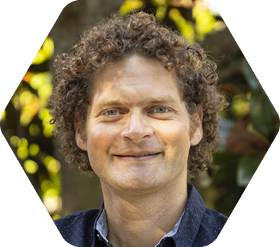Assistant Professor of Marine Science
Galbraith Marine Science Laboratory (GMSL) 106
Education
- Ph.D., Florida Institute of Technology
- M.S., Florida Institute of Technology
- B.S., Florida Institute of Technology
Research interests
My research interests are aimed at determining how both singular and simultaneous environmental stressors like ocean acidification, elevated temperature, hypoxia, and toxic algae (red tide) impact the early life history stages of marine invertebrates. Specifically my research focuses on understanding how these environmental stressors may affect the larval physiology and behavior of Florida’s commercially and ecologically important crustaceans including stone crabs, spiny lobsters, and the Caribbean King crab.
Courses taught
- Biological Oceanography
- Comparative Physiology
Selected publications
- Alaerts, L., Dobbelaere, T., Gravinese, P.M. and Hanert, E., 2022. Climate change will fragment Florida stone crab communities. Frontiers in Marine Science, 9:839767. https://doi.org/10.3389/fmars.2022.839767.
- Gravinese, P.M., Perry, S.A., Spadaro, A.J., Boyd, A.E. and Enochs, I.C., 2022. Caribbean king crab larvae and juveniles show tolerance to ocean acidification and ocean warming. Marine Biology, 169(5), 1-12. https://doi.org/10.1007/s00227-022-04053-8.
- Boehme-Terrana, L., Roux-Osovitz, M., Goergen, E., Mancke, H., Fisher, S., and Gravinese, P.M. 2022. Habitat selection by post-settlement juvenile stone crabs (Menippe mercenaria) and predation risk in shallow near-shore habitats. Journal of Experimental Marine Biology and Ecology. 547:151679. https://doi.org/10.1016/j.jembe.2021.151679.
- Gravinese, P.M., Douwes, A., Eaton, K., and Muller, E.M. 2022. Ephermal hypoxia reduces oxygen consumption in the Caribbean coral, Orbicella faveloata. Coral Reefs. 41: 13–18. https://doi.org/10.1007/s00338-021-02197-5.
- Gravinese, P.M., Page, H.N., Butler, C.B., Spadaro, A.J., Hewett, C., Considine, M., Lankes, D., Fisher, S. 2020. Ocean acidification disrupts the orientation of postlarval Caribbean spiny lobsters. Scientific Reports, 10(1): 1–9. https://doi.org/10.1038/s41598-020-75021-9.
- Gravinese, P.M., Munley, M.K., Kahmann, G., Cole, C., Lovko, V., Blum, P., Pierce, R. 2020. The effects of prolonged exposure to hypoxia and Florida red tide (Karenia brevis) on the survival and activity of stone crabs. Harmful Algae. 98: 101897. https://doi.org/10.1016/j.hal.2020.101897.
- Gravinese, P.M., Aronson, R.B., Toth, L.T. 2020. Digging into the geologic record of environmentally driven changes in coral reef development. Oceanography. 33(1): 85–91. https://doi.org/10.5670/oceanog.2020.113.
- Gravinese, P.M. 2020. The response of juvenile stone crabs to hypoxia: size matters. Journal of Experimental Marine Biology and Ecology. 523:151269. https://doi.org/10.1016/j.jembe.2019.151269.






